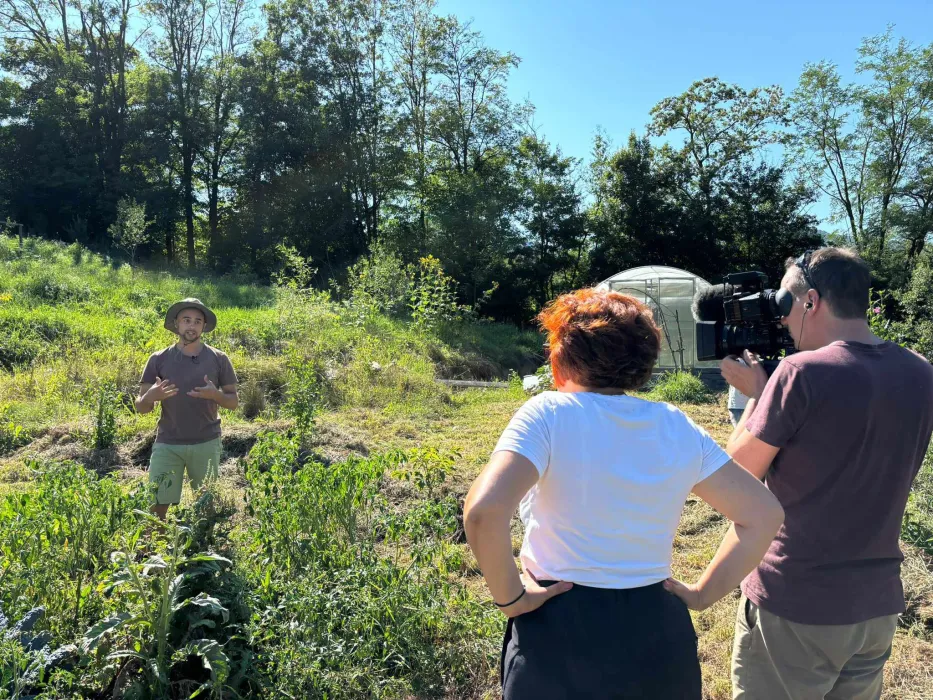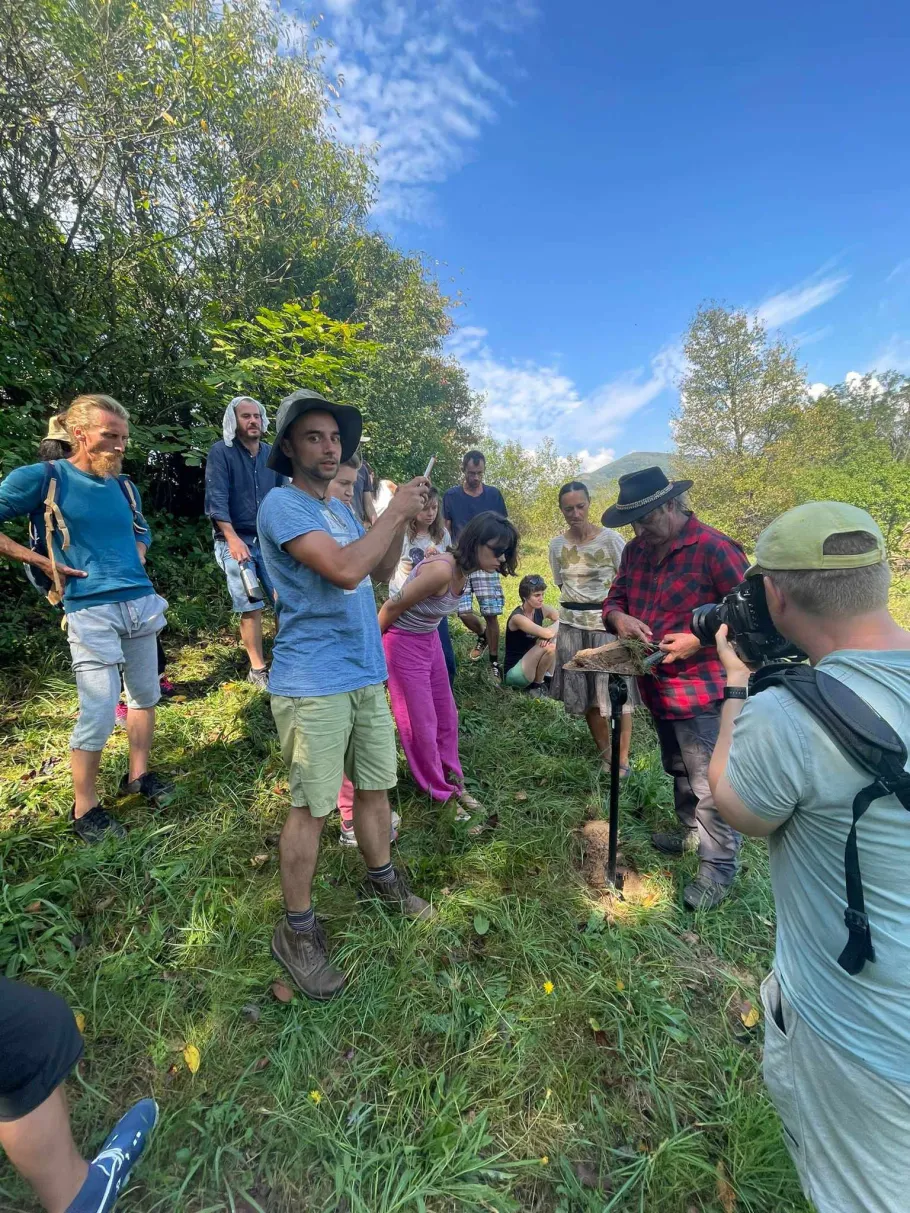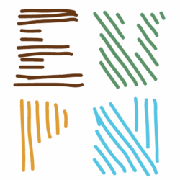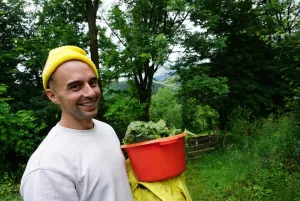
Andreas' story begins far from the rolling hills of the Carpathians, amidst the vast expanse of the sea. Trained as a nautical officer, Andreas spent years navigating cargo ships across the Atlantic. However, the birth of his daughter marked a turning point. "I realized that my work wasn’t meaningful anymore," he reflects. His last voyage was aboard the emission-free cargo sailing ship Avontuur by Timbercoast, where he encountered people who had aligned their lives with their values—a seed of change was planted.
Andreas is a permaculture educator
From the Sea to the Carpathians
Andreas’ wife comes from a small village in the Carpathians, and their visits introduced him to food grown in rich, natural soil—tomatoes that actually tasted like tomatoes. Inspired by this simple yet profound experience, the family decided to spend their summers there. Soon after, they began building their home on a hillside plot that once belonged to Andreas’ wife's grandparents.
Without realizing it, Andreas had already implemented some permaculture techniques while designing their property. Eventually, the term 'permaculture' kept appearing in his research, prompting him to complete a Permaculture Design Course (PDC) in 2021. "From that point, I approached everything more systematically," Andreas explains.
Building a Home and a Community
The family home—built primarily from wood and traditional materials—stands as a testament to sustainable design. With cellulose insulation and a steep roof adapted for heavy snowfalls, the house blends traditional aesthetics with modern sustainability. "We built it with three professional carpenters and help from friends," Andreas recalls. Despite rising costs in Romania, the construction remained far more affordable than it would have been in Western Europe.
Their property has since expanded into a living permaculture site. Terraces were carved into the hillside for gardens, a solar system was installed, and an old barn is being renovated to house volunteers. Speaking of volunteers, Andreas hosts about ten each year, introducing them to permaculture ethics, principles, and the daily rhythms of self-sufficient living. "What I enjoy most is working with people, sharing knowledge, and seeing the impact it has on their lives," Andreas says.
Syntropic Farming and Forest Gardens
Andreas has been experimenting with diverse agricultural techniques, including forest gardens and syntropic farming. With three distinct forest garden areas and a new 700m² syntropic system, his focus lies on perennial crops and resilient design. "It’s still early days for the syntropic plot, but despite heatwaves and drought, it’s thriving," Andreas shares with visible excitement.
The farm produces a variety of crops, including potatoes, sweet potatoes, asparagus, tomatoes, and wild herbs. Excess produce is sold to a Slow Food restaurant in a nearby town or packaged into herbal teas for a small German online shop.

Challenges and Future Visions
Of course, life off-grid comes with challenges. Limited solar power during transitional seasons, balancing volunteer needs, and long-term sustainability remain ongoing considerations. While animals like sheep could help with land management, Andreas and his wife have decided against them for now to maintain their flexibility.
Looking ahead, Andreas envisions expanding his role as a mentor. "I want to improve how I guide volunteers and offer more structured courses," he shares. The goal is to create a space where others can also lead workshops and contribute actively to the community.
A Model for Resilient Living
Andreas’ story is one of transformation—shifting from life at sea to stewarding a piece of land in Romania. It’s a tale of embracing limitations, fostering community, and creating a ripple effect of positive change. Whether it’s through his volunteers, local partnerships, or simply sharing a taste of tomatoes grown on his land, Andreas is building something deeply impactful.

